Horizon 2020 projects CityLoops and PlastiCircle are inviting you to a workshop entitled “Circular economy in waste management: how to replicate action", taking place on 4 May (14:00 – 15:15 CET).
The workshop, a partner event for the EU Green Week, will hear from representatives from pilot cities of the projects PlastiCircle (plastic packaging waste management) and CityLoops (biowaste and construction and demolition waste) on the measures implemented, lessons learnt, and tips for replication. The goal is to guide local politicians and decision makers, as well as European representatives from the plastic, CDW, and biowaste industries that seek to make plastic packaging, biowaste and CDW waste more circular.
The Circular Economy Action Plan issued by the European Commission in 2020 identifies plastics, construction and demolition waste, as well as bio-waste as priority areas due to the adverse impact of their production, use and disposal on the climate as well as maritime and land ecosystems. Consequently, cities around Europe are now piloting and implementing solutions aimed at closing the material loops in these waste streams in order to become more circular and accelerate the transition to a carbon neutral society. In the workshop, participants will hear from cities that have got down to the job and discuss how their approaches can be replicated elsewhere.
Programme:
14:00-14:05
Welcome and interactive introduction to the Workshop
14:05-14:15
Valentin Voinica (City of Alba Iulia): Presentation by the PlastiCircle pilot on the solutions implemented and results achieved
14:15-14:25
Mireia Calvo (ITENE): introducing the collection & transport phases and how to replicate them
14:25-14:35
Interview with speakers
14:35-14:45
Kimmo Haapea, City of Mikkeli: presenting the CityLoops approach with a focus on decision making, the tools and measures that are implemented and a business case study
14:45 - 14:55
Kaitlyn Dietz, Officer Sustainable Economy and Procurement, ICLEI Europe: Outlining CityLoops replication approach and the ways in which the project will aim to transfer knowledge and experiences
14:55 - 15:05
Moderated Discussion and Q&A
15:05-15:10
Wrap-Up and Closing
The workshop will be moderated by Peter Defranceschi, Head of Brussels Office, ICLEI Europe.
Interested? Register here!
